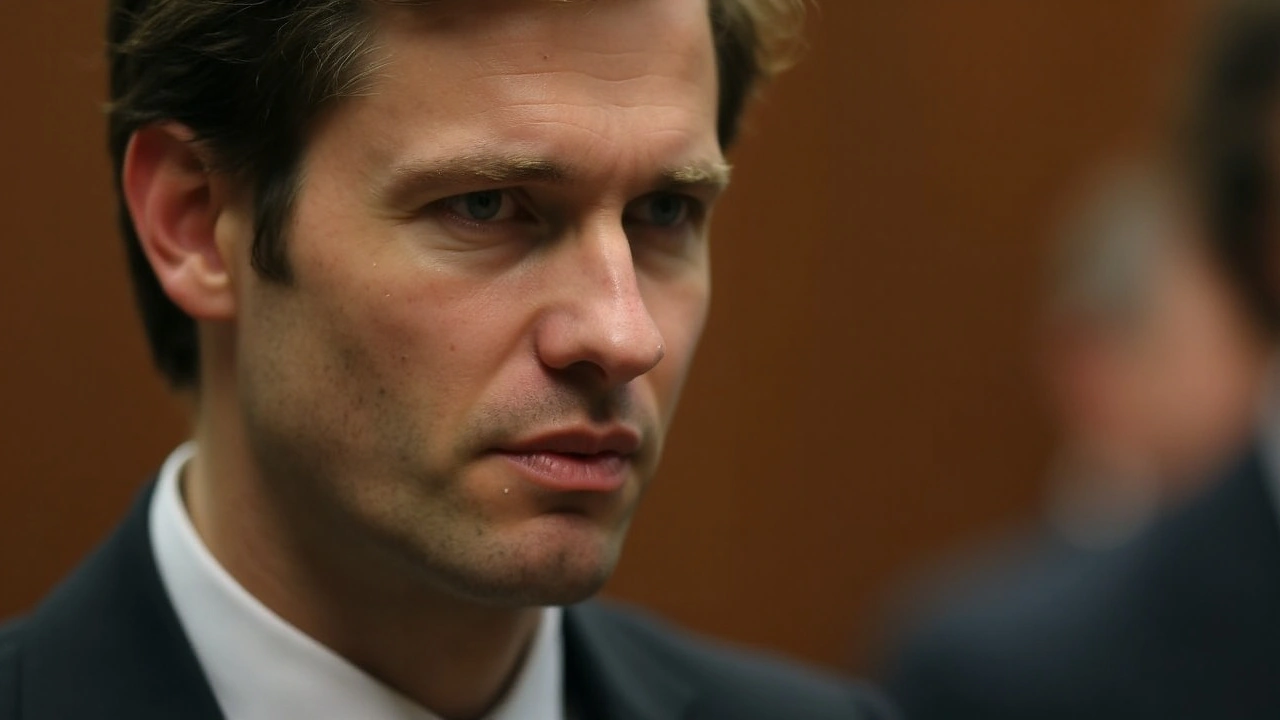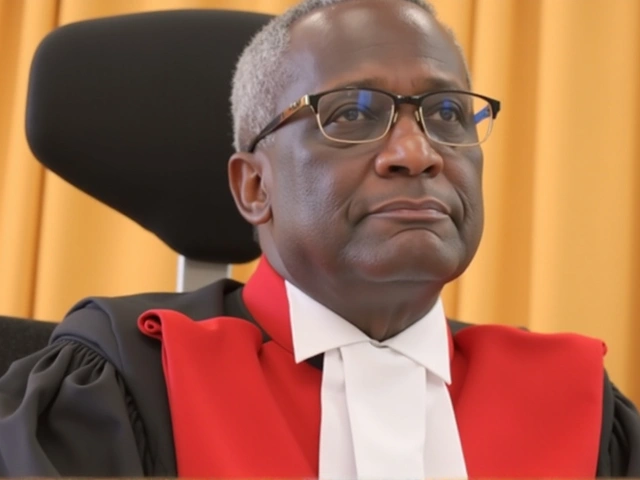Pavel Durov, the innovative force behind the encrypted messaging app Telegram, has once again made headlines, but this time due to his arrest in France on August 24, 2024. The arrest is reportedly linked to ongoing disputes over content censorship.
Pavel Durov is no stranger to controversy. Known for his unwavering stand against governmental interference and his advocacy for user privacy, his arrest underscores the escalating tensions surrounding online freedom. His journey began with the founding of VKontakte, Russia's largest social network, before stepping onto the global stage with Telegram in 2013.
Telegram quickly gained popularity as a secure platform that places a premium on privacy. However, its refusal to bow down to various governments’ demands for user data has led to severe clashes, most notably with Russian authorities. In 2018, Russia banned the app when Telegram did not comply with data disclosure demands. Users, however, found clever ways to keep using it.
The reverberations of Durov's recent arrest are likely to extend beyond France, touching off new debates on the fine line between security, privacy, and freedom of expression. His steadfast opposition to tech behemoths like Google and Apple over their content control policies further fuels the global conversation.
Who is Pavel Durov?
Pavel Durov is a name that reverberates across the tech world, primarily for his audacious spirit and tenacity against censorship. Born on October 10, 1984, in Leningrad, now known as Saint Petersburg, Russia, Durov showed signs of brilliance early on. His journey into the tech world began during his college days at Saint Petersburg State University, where he studied Philology. But it was his knack for coding and his vision for social networking that set him on a different path.
In 2006, Durov co-founded VKontakte (VK), which soon rose to become Russia's most popular social networking site. Often compared to Facebook, VK allowed users to share content, communicate, and connect. Under his leadership, VK expanded rapidly, gaining millions of users across Russia and other Eastern European countries. His role at VK wasn't without challenges. In 2011, during the protests following Russia's parliamentary elections, Durov refused to shut down opposition groups' pages despite pressure from government authorities. This stand made him a hero to many but also a target for governmental scrutiny.
In 2014, following a series of conflicts with Russian authorities over data privacy and censorship issues, Durov was ousted from VK. Rather than back down, he channeled his efforts into creating something even more revolutionary. That same year, he launched Telegram, an encrypted messaging app designed to offer secure and private communication. Telegram's features, such as self-destructing messages and encrypted chats, quickly attracted a massive user base worldwide. The app became particularly popular among those who valued privacy and were wary of government surveillance.
Over the years, Durov has been vocal about his strong stance against censorship and his commitment to user privacy. In various interviews and public statements, he has criticized tech giants like Google and Apple for their policies on content control. His defiance against handing over user data to governments has led to several standoffs, notably with the Russian government. In 2018, Russia banned Telegram after Durov refused to comply with the country's demands to access user data. The ban, however, was met with widespread digital resistance in Russia, with users employing VPNs and other methods to circumvent the restrictions.
Pavel Durov is often seen not just as a tech entrepreneur but as a digital freedom fighter. His journey from founding VK to creating Telegram symbolizes a relentless pursuit of online freedom and user privacy. His recent arrest in France brings to light the ongoing global debates over internet censorship, privacy, and the balance between security and freedom of expression.
Pavel Durov once said, "Privacy, in the end, is the only thing that matters." This quote encapsulates his unwavering commitment to user privacy and his belief in creating a world where individuals can communicate freely without fear of surveillance.
Understanding who Pavel Durov is and what he stands for is crucial in grasping the larger narrative of internet freedom and censorship. His life's work and the principles he embodies continue to inspire many in the tech community and beyond.

The Rise of Telegram
In the ever-evolving world of digital communication, few apps have created as much buzz as Telegram. Founded by Pavel Durov in 2013, Telegram emerged as a veritable powerhouse in the messaging app world, distinguished by its robust security protocols and unwavering commitment to user privacy. From its inception, Telegram’s mission was clear: to provide a platform where users could communicate freely, without the fear of governmental scrutiny.
One of the key features that set Telegram apart from its competitors was its use of end-to-end encryption. This technology ensures that only the sender and the recipient can read the messages, making it nearly impossible for third parties to intercept. This emphasis on secure communication struck a chord with users around the globe who were becoming increasingly concerned about their online privacy. By providing a safe haven for private conversations, Telegram rapidly grew in popularity.
As the app gained traction, it also introduced various unique features that further distinguished it from the likes of WhatsApp and Facebook Messenger. Telegram Channels, for instance, allowed users to broadcast messages to large audiences, providing a seamless way to share information with thousands of followers. This feature quickly became a favorite among activists, journalists, and businesses alike, as it facilitated the rapid dissemination of news and updates.
Moreover, Telegram’s commitment to user freedom resonated deeply in regions with stringent governmental controls. The app became a lifeline in countries like Iran and Russia, where government censorship was rampant. For many, it was the only way to access uncensored news and communicate without fear of retribution. This transformative power of Telegram was not lost on Durov, who has often spoken about the importance of maintaining an open internet. He once said,
“Privacy, ultimately, is more important than safety.”
One remarkable aspect of Telegram’s rise was how it navigated numerous legal challenges with dexterity. When Russian authorities demanded access to user data, Durov stood his ground, saying that Telegram would not compromise its principles. This defiance led to a ban in Russia in 2018, but rather than fading into obscurity, Telegram only grew stronger. Users employed VPNs and other workarounds to sidestep the ban, demonstrating a massive show of digital resistance.
Telegram’s growth trajectory is also illustrated by its user base. The app, which started with a modest number of users, has now crossed the 500 million mark, a testament to its global appeal. Its impressive array of features, including secret chats, self-destructing messages, and the option to join public groups, continues to attract new users. In the wake of data breaches and privacy scandals affecting other platforms, many have turned to Telegram as a safer alternative.
In conclusion, the rise of Telegram is not merely a story of technological innovation; it is a narrative about the battle for digital autonomy. Pavel Durov’s unwavering commitment to user privacy and his resistance against government censorship have turned Telegram into more than just a messaging app. It has become a symbol of digital resistance and a beacon for those who value their freedom of expression. As Durov himself aptly put it,
“The price of freedom may be high, but never so costly as the loss of freedom.”

Clashes with Governments
Pavel Durov has often found himself in the eye of the storm due to his steadfast commitment to privacy and opposition to content censorship. One of the most notable clashes was with the Russian government. In 2018, Russia demanded access to Telegram’s encryption keys, asserting that the move was crucial for national security. Durov and his team flatly refused, arguing that such a step would compromise user privacy. This refusal led to Telegram being banned in Russia, but users quickly found ways around the ban, using VPNs and other circumvention techniques to access the app.
The conflict with Russia wasn't Durov's first brush with government restrictions. Prior to founding Telegram, he had established VKontakte, Russia's version of Facebook. VKontakte also faced government pressure to provide user data, especially during times of political unrest. Durov chose to flee Russia instead of complying, selling his stake in VKontakte and setting his sights on creating a more secure and private communication platform: Telegram.
Another significant conflict arose in Iran, where the government feared the app was being used to organize protests. Tehran insisted on monitoring Telegram to curtail what it considered subversive activities. Durov maintained his position, again refusing to grant access to user data. Telegram was subsequently blocked, inciting public outcry and propelling the debate over internet freedom onto the global stage.
Durov's friction with governments isn't limited to Russia and Iran. China has also blocked access to Telegram, citing its use by human rights activists and journalists. Even countries with more lenient internet policies, like those in Europe, have raised concerns. France and the UK have questioned the platform's role in spreading extremist content. Yet, Durov remains unyielding, prioritizing user privacy over government mandates. His vocal criticism of tech giants like Google and Apple for what he describes as their 'draconian' stance on content censorship has set him apart.
Pavel Durov once said, "Privacy, in the end, is the most important aspect of a free society." This quote encapsulates his philosophy and summarizes why he has repeatedly clashed with governmental authorities worldwide.
The United States has largely been an observer in these clashes, but even there, politicians have occasionally raised concerns about the app's encryption standards. Some argue that these strict privacy measures could be exploited by criminal elements. However, Durov argues that such measures are indispensable for protecting users, especially in countries with heavy surveillance.
Despite the constant pressure, Telegram’s popularity continues to grow. It serves as a vital tool for journalists, human rights activists, and anyone seeking a secure mode of communication. The app's ability to provide secure, reliable communication has made it indispensable in regions where freedom of speech is under attack.
Pavel Durov's recent arrest in France has once again brought these issues to the forefront. It highlights the global implications of his stance on privacy and government interference. Durov's commitment to resisting content censorship at all costs underscores a broader struggle between the need for security and the right to privacy. The debates ignited by his arrests and bans are far from over, and the world eagerly watches as this unfolding drama challenges the very fabric of internet freedom.

Impact of the Arrest
With Pavel Durov's arrest making the headlines, the world is once again forced to confront the complex issue of internet freedom. The founder of Telegram has always stood as a symbol of resistance against censorship and a staunch advocate for user privacy. His detention in France has many far-reaching implications, not only for Telegram's user base but also for the broader ongoing debate between privacy and security.
Firstly, Durov's arrest sends a chilling message to other tech entrepreneurs who prize user privacy over governmental control. It signals that authorities may intensify their efforts to regulate or curb platforms that defy traditional norms. This has already raised alarms among privacy advocates and digital rights organizations.
Moreover, it could deter new players from entering the space of secure communications. If someone as influential as Durov can face such consequences, then new entrants might think twice before challenging the status quo. The arrest could stymie innovation in the digital privacy sector, causing stagnation at a time when secure messaging is more crucial than ever.
The user base of Telegram is also likely to be directly impacted. Concerns over the platform's future stability and potential actions by other governments could lead to a mass exodus of users. Such uncertainty often leads to reduced usage or even the abandonment of the service. Users may start exploring alternative platforms that offer similar levels of encryption and security but operate with less controversy.
There is also the question of how other governments will react to this development. Countries where Telegram has had past conflicts—such as Russia and Iran—might perceive this as an opportunity to intensify their efforts against the platform. The arrest could embolden these governments to push for more stringent regulations and bans, leveraging the incident as justification for their own censorship measures.
Another critical aspect to consider is the economic impact on Telegram. The company could face financial pressure as advertisers and investors become wary of its future. Media attention on Durov's arrest could drive away potential partnerships and investments, forcing Telegram to rethink its business strategies.
Interestingly, some analysts argue that this arrest might have the opposite effect, galvanizing Durov's supporters and users who rally behind the cause of internet freedom. A similar phenomenon occurred when Russia banned Telegram in 2018, leading to many digital activists finding ways to still use the app despite governmental restrictions.
"Durov has been a steadfast advocate for privacy and security. His arrest is a stark reminder of the challenges we face in maintaining a free internet," said Eva Galperin, Director of Cybersecurity at the Electronic Frontier Foundation.
The situation is still developing, and the real impact of Durov's arrest will unfold in the coming days and weeks. However, one thing is certain: this event has reignited the critical conversation about where we draw the line between government oversight and digital freedom. As the world watches closely, the ramifications of this arrest will likely influence policies and attitudes toward encrypted messaging services for years to come.




Pavel Durov's resolve inspires us to champion privacy in the digital age.
Wow, Durov getting hauled off in France adds a whole new layer to the whole privacy debate. It feels like the tech world is on a rollercoaster right now, and nobody knows where the next twist will be. I get why some governments are nervous, but cracking down on encryption just fuels the fire. People will keep finding workarounds no matter how tight the net gets. At the end of the day, freedom of speech online is something we should all protect.
Oh great, another drama queen tech billionaire getting arrested – as if that will change anything 😂. Governments love to point fingers while the real threat is the unchecked power of these platforms to spread misinformation 😒. Telegram's supposed “privacy” is just a hideout for bad actors, no need to romanticize it 🙄. If Durov wants to talk about freedom he should start by giving up his own privileged status 😤. The media will hype this as a hero saga, but it’s just another PR stunt 🤦♂️. Let’s see how many users actually abandon the app when the heat really turns up.
The unilateral vilification of Durov reflects a deeper geopolitical malaise where sovereign interests are eclipsed by Western liberal dogma. India's digital sovereignty must not be compromised by foreign agitators who flaunt encryption under the guise of “privacy”. The narrative that Durov is a martyr for freedom ignores the strategic utility of state‑controlled communication infrastructures. A robust cyber‑policy framework should prioritize national security while accommodating legitimate user confidentiality. Technocratic discourse must acknowledge that unbridled cryptography can become a vector for subversive activities against the motherland. Hence, the French detention serves as a cautionary exemplar for all nations safeguarding their digital ecosystems.
The recent detention of Pavel Durov in France underscores the intricate balance between individual privacy rights and state security imperatives.
The Telegram platform has undeniably provided a valuable service for secure communication, yet its steadfast refusal to cooperate with lawful requests raises legitimate concerns.
International legal frameworks, such as the Budapest Convention on Cybercrime, seek to harmonize investigative powers with human rights protections.
Durov's position appears to challenge the spirit of such agreements by asserting an absolute shield against any form of governmental oversight.
Critics argue that this absolutist stance may inadvertently facilitate illicit activities ranging from organized crime to extremist propaganda.
Proponents, however, maintain that any erosion of encryption would set a dangerous precedent for surveillance across democratic societies.
The French authorities, acting within their jurisdiction, appear to be testing the limits of extraterritorial enforcement against a non‑resident executive.
This development may inspire other European Union member states to adopt similar measures, thereby reshaping the operational landscape for encrypted platforms.
At the same time, the incident could galvanize civil society groups to renew calls for stronger privacy safeguards.
Legal scholars note that the tension between privacy and security is not a novel phenomenon, but rather a recurring theme in the evolution of digital policy.
Historical precedents, such as the debates surrounding the USA PATRIOT Act, illustrate how emergency legislation can become entrenched.
Accordingly, continuous oversight and transparent judicial review are essential to prevent the normalization of excessive state intrusion.
For users of Telegram, the uncertainty surrounding Durov's legal status may prompt migration to alternative messaging services that offer comparable encryption.
Nevertheless, the network effects and established user base of Telegram make a wholesale shift unlikely in the short term.
In conclusion, the arrest serves as a focal point for broader discussions on how democratic societies can reconcile the protection of civil liberties with legitimate security objectives.